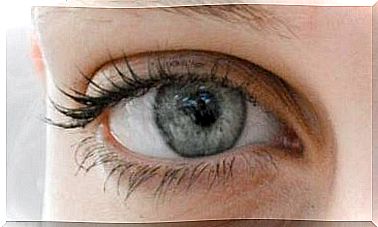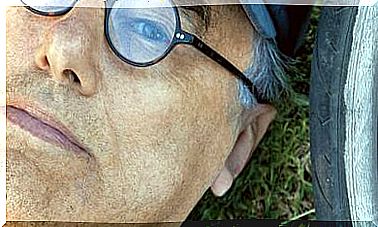“Homeopathy Survives, Although It Seems Implausible”
Dr. Peter Fisher, one of the most prestigious homeopaths, relies on the most rigorous studies to guarantee its effectiveness once and for all.

The British public health system is home to five hospitals that, like the one led by Dr. Peter Fisher, combine traditional allopathic medicine with integrative medicine. Yours is undoubtedly the benchmark.
The London Homeopathic Hospital, created in 1849 and renamed The Royal London Homeopathic Hospital in 2005 , was saved from closure in the late 1990s thanks to its patients, who managed to get 200 MPs to sign a motion of no confidence in the House of Commons against the initiative to close it.
“The population has always been reluctant to give up homeopathy, because people demand it,” says Fisher. And it is that in 1997 the European Commission estimated that 29% of the population resorted to this discipline, figures that today have been increasing: 50% in France, 40% in Germany and 30% in Switzerland and Norway.
It is also the third medicine consumed in India, along with allopathic and Ayurveda, and very popular in Brazil. “In all countries it is practiced the same, even in those that did not have cultural roots,” explains Fisher. “And there is something that I like and that is that it continues to exist even though it seems implausible.”
More than 1,000 studies prove the efficacy of homeopathy
– At what point is the level of scientific evidence on the benefits of homeopathy?
—There are a lot of basic science and clinical trials, but when we release them, they tell us they’re wrong or even a fraud, because they don’t think infinitesimal dilutions can work.
There is a free database called CORE-HOM, which contains 1,117 homeopathy clinical trials, of which 300 are randomized controlled trials to avoid bias. They can be consulted by subject, by disease, according to the molecule used, method; all the information is there.
“So, evidence is not lacking today …” “
Indeed, there is a great deal of evidence at different levels.”
Basic research has shown that this homeopathic preparation method has effects on the structure of water. We also have in vitro experiments, where we can see its effect on cells, and animal tests.
For example, we have seen that homeopathic Gelsemium works just as well as conventional tranquilizers. Then there are the randomized clinical trials, which, taken together, are positive for homeopathy and specific areas such as fibromyalgia, allergies, upper respiratory infections, rheumatological diseases, diarrhea …
And there are pragmatic studies, to study what happens when homeopathy is included in health systems, when general practitioners use homeopathy with other treatments when they don’t.
And we find consistent results again: homeopathy improves results, with fewer side effects, less use of other drugs and at the same cost.
—However, homeopaths are still criticized for being far from scientific methodology …
—We are surrounded by prejudices. Homeopathy studies are on average of better quality than equivalent studies in conventional medicine.
Most of the meta-analyzes done in homeopathy are positive, except for one that has been negative. But this was based on only 8 studies and it was not even recorded what they were.
It is only known to have been published in The Lancet , but all it showed is that out of 110 studies of conventional medicine and 110 studies of homeopathy, 21 of homeopathy were of high quality and only 9 of conventional medicine were of high quality. high quality.
We better understand how homeopathy works
– Have these studies proven that water can retain information?
—We can show that the method of preparing homeopathic compounds causes long-lasting structural changes, persistent for years, due to the high energies they produce.
But we do not know how that information is transmitted in the body. Memory in homeopathy is not something chemical: it is physical. So the main objection that homeopathy does not work and that it is impossible to produce any effect because of its high dilutions is changing and there are new scientific concepts that make it more and more valuable.
—The recent discovery of nanoparticles in homeopathic medicines provides another point of convergence between modern nanomedicine and alternative strategies. What role do nanoparticles play in homeopathy?
—Nanoparticles are very important.
There are three types. Some come from the original material. Others come from silica as a result of shaking the glass tube where the preparation is created, which reaches very high energies on a very small scale, and temperatures above 1,000 degrees Kelvin, and we do not yet know how, but they may contain information. . But the most important are dissolved gas nanoparticles, tiny bubbles that structure water and which may be the way information is transported. This is very specialized research.
—You are a member of the World Health Organization panel of experts on traditional and complementary medicine. Perhaps homeopathy will achieve the support that the WHO intends to give to these medicines?
—WHO has a strategy set until 2023 to promote traditional and complementary medicines, thanks to the strong support it is receiving from the Director-General, Margaret Chan.
The governments of India and China are following it, but not Europe that I know of. This program has just started with the safety regulations that must be followed, such as needle prophylaxis, in the case of acupuncture, because its quality as a medicine, as in the case of homeopathy, is already considered proven.
Trained from the elite of Cambridge University, Peter Fisher, a rheumatologist and homeopath, directs the Royal London Hospital for Integrative Medicine, of which he is also Research Director. His hospital is the first center to champion the use of homeopathy in the UK and today is considered the beacon of integrative medicine in Europe. As editor-in-chief of the journal Homeopathy, the only one of its kind indexed in Medline (the largest medical bibliography database that exists), hundreds of studies have passed through his hands to the accuracy of which he attests. Besides, of course, being the Queen of England’s doctor.








